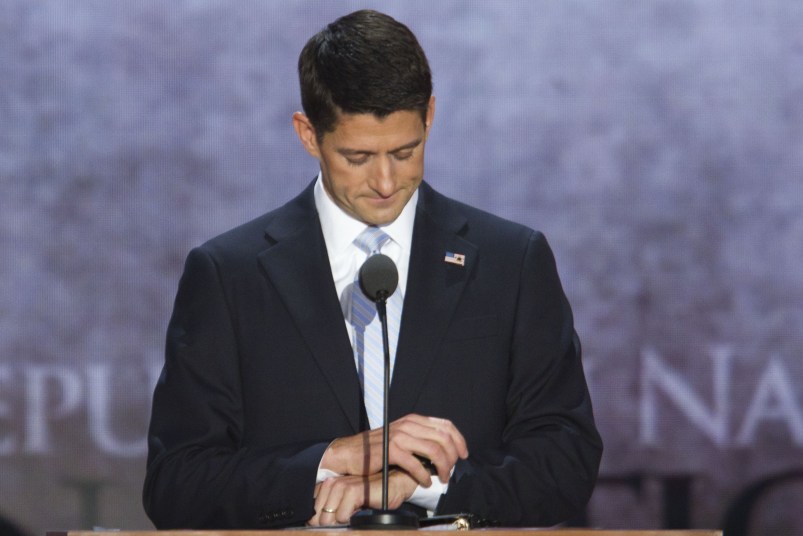Paul Ryan’s convention address hasn’t gotten a pass from the media.
The two strongest lines of criticism center on the way the vice presidential nominee discussed Medicare: He attacked President Obama for ending Medicare’s overpayments to insurers and hospitals — cuts he’s endorsed in the past — and eschewed any detailed discussion of his campaign’s much more significant plan to phase out Medicare and replace it with a subsidized private insurance system.
He shouldn’t be surprised at the response. At a Christian Science Monitor breakfast roundtable on February 16 of this year, Ryan made two distinct but related appeals to the reporters in attendance. First, that campaigns shouldn’t engage in what are known as “Mediscare” tactics — misleading attacks meant to scare seniors out of voting for the other party. Second, that campaigns should build their campaigns around their boldest plans, so that victory results in a clear governing mandate.
He took the opposite approach on Wednesday.
At the breakfast, Ryan called Mediscare tactics “cynical.”
“If you just play defense or ignore this, they’re going to define this, they’re going to demagogue you, and they’ll get away with it, and they’ll scare seniors,” he argued. “[Voters] don’t want to be pandered to like children. When all these sort of pandering ads occur — there’s so much of this stuff these days…people are just sort of desensitizing to this.”
Instead, he made the case that the eventual Republican nominee should run — hard — on the GOP’s Medicare reform plan.
“Bush ran in ’04 I would argue as sort of a national security message, and then over in the Reagan building after John Kerry conceded he said, ‘I’m doing social security and tax reform.’ That was the first time I heard of that — and I [said] ‘yeah!’ — it went nowhere,” Ryan recalled.
“This current president ran on I would say more of a vague platitude campaign, hope and change, and then he gave us all the stuff he did with the Pelosi Congress. You’ve got to prepare the country. … This time is different because of the country. And we just can’t have an ordinary election — where it’s a personality contest, and then you win by default and then you don’t have a mandate. We need to have an election with a mandate so we can actually fix these problems. So that we know — the country knows what we’re doing and they’ve told us to do it so now we have to do it.”
Pressed to defend his claim that then-candidate Obama wasn’t forthright with voters about his plan to overhaul the health care system, Ryan said, “You can’t have a campaign that’s just a box checker — you know, where you give one speech at one place so you can go back and say, ‘see I talked about this.’ You have to make it a centerpiece of your campaign.”
As budget committee chairman, Ryan wrote the GOP’s main governing document. His policy views are well known inside the beltway. But at the convention he avoided spelling those views out to voters in clear detail and instead devoted several minutes of his speech to attacking the president for enacting Medicare cuts he endorsed before he became Romney’s running mate.
That goes a long way toward explaining the media’s reaction.










